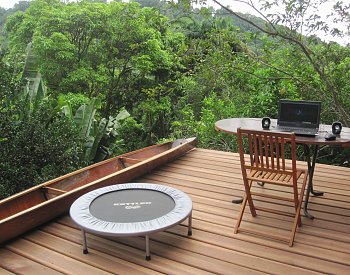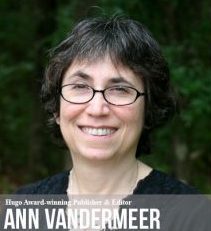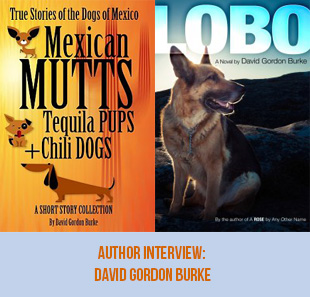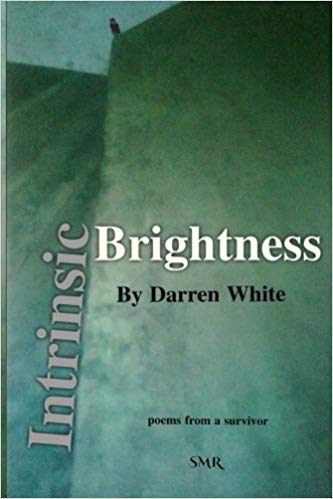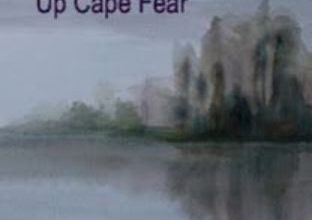Author interview with horticulturalist and nature writer, Donna Mulvenna
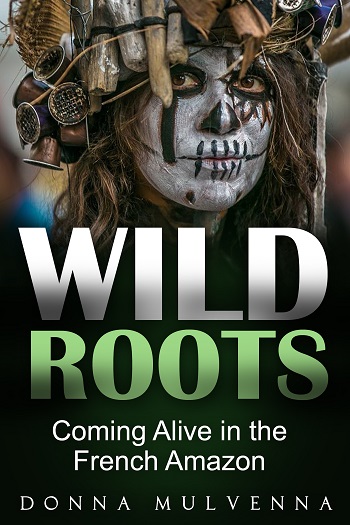
Our next author interview is with Donna Mulvenna, or better known to WF members as Donnam.
Donna Mulvenna is a horticulturalist and nature writer living in the Amazon rainforest in French Guiana.
Her writing offers a close-up glimpse into the fascinating world within the rainforest, reveals the profound effect it has on each of us, and encourages people to form a personal connection with the natural world.
When she isn’t writing from her treetop office, reading from a sea kayak off the coast, or lunging head first through the jungle, she is hurtling along wild untamed rivers in a sprint canoe.
Please tell us a little about yourself, including interests and hobbies.
I was born in Australia during the 60s hippie revolution; grew up on the Gold Coast, an imitation of Miami, alongside surfing, bodybuilding and bikini contests; kicked off my working career during the ‘me’ decade of economic greed and consumption; and set off to travel the world well before my 25th birthday. Perhaps that explains why I’m a person always on the move, whether that is time or place, or at least I was until life slowed down in the Amazon.
I’ve lived in a gypsy caravan on the Isle of Skye, a renovated farmhouse in Yorkshire, a fairy tale castle in the Loire Valley and now a bush carbet in French Guiana.
My career path has changed 8 times and includes legal administration, communications, equestrian show jumping, naturopathy, cheese making and horticultural science. I’ve also started two businesses – an organic health food store and a farm sitting business.
Interests include English bull terriers, seed saving, and star gazing but my hobbies tend to morph into obsessions like sprint canoe paddling, camping in the wild, living on a plant-based diet and writing.
Today my life is planned to maximize the amount of time I spend on the water and in nature, and that never gets tired or boring.
French Guiana is such an unusual and ‘off the beaten track’ location – who or what inspired the move?
It is so far off the beaten track that neither I nor any of my friends had ever heard of it. Even the staff at the International medical centre where I had my yellow fever vaccination had to look it up and the nurse told me, “I’m sorry but French Guiana is not a place.”
Temporary insanity, the type driven by hormones, inspired the move. I fell head-over-heels in love with my new boyfriend, Franck, a former Olympian sprint canoeist who was on a personal mission to “give something back by putting kids in canoes.” He chose French Guiana (Guyane), as the place to do it. I simply tagged along with his sprint canoe.
What was your initial impression?
I did not like it. My first words upon leaving the airport were, “Where in hell have you brought me?” The only reason I survived the first few months was because I assumed it was temporary.
How easy was it to adjust to life on the edge of the Amazon rain forest?
It was both the easiest and the hardest thing I have ever done.
The first 6 months were tough because everything was so uncomfortable.
As a white person, I became the minority and my normal was suddenly abnormal, as values, expectations, and way of life are completely different here.
I applied more hydrocortisone cream and took more anti-histamines than I had taken in my entire life and believe me when I tell you I have to be desperate to use any type
of drug.
The soles of my favourite Blundstone boots fell off, my computer battery died, all my clothes went mildew, my indestructible lifetime guaranteed commercial blender gave up and the springs on my exercise rebounder snapped like bubble wrap. Nothing survives the Amazon’s humidity wall.
Also, although everybody spoke at least three languages none of them were English, and customer service is non-existent here. The first phrase I learned and heard all the time was, “Pas de soucis,” which means “don’t worry.” But a more accurate translation is, “don’t worry because we’re sure as hell not going to.”
However, it was the easiest thing I have ever done because of something deep inside of me, some primal force infinitely beyond my comprehension, that started to come alive here. I began to shake off a tension, wariness, and discontentment I think I had always carried.
What are your likes and dislikes?
There are so many things I disliked in the beginning that I find acceptable now.
Waiting for hours in a queue to buy a stamp, visiting supermarkets with grossly understocked shelves, negotiating kamikaze moped drivers, ants and mosquitoes in proportions you can never imagine, pot holes big enough to swim in, dog pooh everywhere, the brown murky water and muddy floor of the sea, and public swimming pools that open for only two hours per day.
The only thing I cannot accept is waste and litter. One day Franck and I were about to set off in our canoe when a Brazilian family walked to the water’s edge alongside us and dumped all their household rubbish into the sea. They honestly don’t comprehend the difference between dumping rubbish in their own backyard or an area of natural beauty or depositing it at the tip. And I suppose there is something in that. Just because we don’t like to see rubbish doesn’t mean it isn’t there.
Thankfully, there’s been a massive improvement in waste management just in the time we’ve lived here. Better facilities, educational campaigns and France’s banning of plastic bags and other plastics is paying huge dividends.
What do I like?
Well, in the words of a local cab driver, “Man, this is the last place in the world where you can be truly free.”
I also like that the jungle rules and it never gives up trying to reclaim what man has taken away, the wild untamed rivers that have so much wildlife you literally don’t know which way to look, the people who are so accepting and tolerant of everyone’s differences, the large range of bananas and tropical fruits, pirogue (traditional canoe) racing, bright colours, vibrant music and wild dancing, and hummingbirds and monkeys that distract me from my work.
And sloths. I can spend hours watching the progress of a sloth. They have life all worked out.
What do you miss most from home?
The first year it was everything – luxuries and comforts; medical professionals that allow you to make appointments; reliable internet, power and water utilities; paved footpaths and roads – any footpaths or roads; gigantic shopping malls; customer service, professionalism, standards, guidelines, rules and enforced laws; surf lifeguards; and vegan/vegetarian food options and restaurants.
Now, with the exception of friends and family, clear blue surf, and health food stores, nothing.
I certainly don’t miss the bull sharks that lurk in manmade canals! Give me anacondas, piranhas, caiman and penis penetrating fish any day.
To give our readers a better idea of life in the Amazon, please can you share a photograph depicting a snapshot of daily life.
Donna’s treetop office!
Please tell us about your latest book ‘WILD ROOTS: Coming Alive in the French Amazon‘.
Wild Roots – Coming Alive in the French Amazon is a story about personal transformation, reconnecting with the natural world, adventure, love, hardship, and racial diversity gone right.
It began as a series of email newsletters to friends and family at home and as a tool to help me understand the changes that were taking place within me.
The newsletters began circulating among friends. Readers started to contact me to thank me for inspiring them to make positive changes in their lives and one friend in particular began badgering me to write a book.
I started to record the reasons why I thought I had found immeasurable freedom, happiness, and fulfilment here, in a place where I really thought I shouldn’t.
What was so special about the French Amazon, and why?
Most of Wild Roots is my way of repaying French Guiana for all it has given me. I feel responsible and indebted to this place and hope to inspire readers to help save it.
What genre does your book fall in and why?
Wild Roots is definitely a multi-genre book. It falls into travel because it covers the history, sights, destinations, events and activities in Guyane but is also a memoir because it is an account of my true life experience.
However, it mostly falls into the eco-nonfiction genre because it is a story about humanity’s connection with nature and how that can transform your life, even when you least expect it or even want it.
Although you are an experienced horticulturalist, what were the challenges (research, literary, psychological, and logistical) you experienced in writing Wild Roots?
I would like to say writing Wild Roots was easy, but there were challenges. I didn’t have Internet access for over a year. That drove me to the point of distraction, but in hindsight it turned out to be a blessing because I spent more time writing and less time surfing.
As the book is based on my personal experience there wasn’t a lot of research involved, and as a horticulturalist, that was probably my biggest strength. Also, my background is in technical writing so it was a test to turn my experiences into a story and not a report.
I have never suffered from writer’s block. I have the opposite problem where I can’t stop writing and tend to overwrite everything. I’m told I have the same tendency when I talk.
Self-doubt was a hurdle I needed to overcome. Could I write in an engaging way? Would people enjoy the story? Fortunately, I joined the writers’ forum and received a lot of positive feedback, encouragement, and help from experienced writers. It was there I learned self-doubt is par for the course, editing your work so often you can recite the book backwards is normal, and why you should start building an author platform yesterday.
The first impression I had of your book was its amazing cover. What importance do you place on cover design and why?
I place as much importance on cover design as I do on good content.
The cover needed to tell a story and do the story justice while attracting a wide audience. It took some time to find an image that could do that.
A local photographer, Fabrice Juste, captured the image. He is extremely passionate about Guyane and it shows in his work.
Who designed the cover?
I found an experienced graphic designer on fiverr.com and he worked closely with me. I didn’t want to stifle his ideas and creativity by telling him what I wanted (and because I didn’t really know in terms of layout), so instead I sent a brief synopsis of the book. He obviously read as he got the cover design perfect straight off.
That hasn’t been my experience with all my covers. With some, I stated to the letter what I wanted only to be unhappy with the result.
You don’t always know what you want.
Please can you share a short excerpt?
“As well as being an astonishingly powerful bird – imagine legs almost as thick as your arm – they are possibly the most scary-looking of the carnivorous birds. It is the harpies themselves that are depicted in Greek mythology as horrid winged women with their breasts hanging out who swooped down to take humans to the underworld.”
You have now written 5 books. Which is your favourite and why?
Wild Roots – Coming Alive in the French Amazon is by far my favourite because I bared my soul.
One of the other books was written as a direct result of Wild Roots. I was sad to learn that most children today believe they will grow up in a world worse than it is today.Building Tomorrow’s Entrepreneur is about empowering children to greatness, socially and creatively and to give them hope.
Did you follow the traditional publishing route or self-publish? If self-published, what difficulties did you experience and how did you overcome them?
I did quite a lot of research on the pros and cons of traditional and self-publishing.
Time was important to me. I wanted to get the book into readers’ hands as quickly as possible so shunned months of distributing manuscripts in the obscure hope of securing a publisher.
Also, I learned most traditional publishing houses require authors to do their own marketing, so I thought if I’ve written the book, designed the cover, and have to do the marketing, I might as well go through the entire process.
What social media platforms do you use to promote your books and which have you found to be the most effective?
I use facebook, Youtube, and twitter.
However, to launch the book I used the promotional services of books butterfly. They guaranteed a certain number of downloads or my money back, and downloads far exceeded expectations.
What are you working on at the moment?
All the things I should have done before I wrote the book such as marketing and building an author platform.
I’m also exploring a story line for Wild Roots 2 and have started to put my feelers out for other people, including indigenous peoples, who live life half wild in the Amazon.
If you could invite three guests to dinner, who would they be and why?
I’m going with people who remain in the living so I won’t include John Muir, Octavie Coudreau or Mahatma Gandhi.
My three dinner guests would be Jane Goodall because she is absolutely beautiful isn’t she? She lives it and breathes it and is spreading a message that “It is not too late.”
Rosalind “Roz” Savage, writer and environmental advocate, because any woman who can row solo across three oceans can teach me something about hardship.
Dallas Goldtooth, a committed conservation campaigner who helped stop the Keystone XL pipeline and is now trying to stop the Dakota Access pipeline and is doing it by making people laugh.
And can I sneak in famous green Chef, Wolfgang Puck, because someone needs to cook?
That’s it. A primatologist, an adventurer, a comedian, and a chef.
Your books are *eco non-fiction I believe, what advice can you offer writers considering writing in this genre?
Don’t be afraid to reach out to other eco non-fiction authors and publishers for help. They represent all that is great in our world and that includes kindness and generosity.
Where and in which formats are your books available?
The book is currently available on Amazon kindle. However, it will soon be distributed via Smashwords and available in hard copy and audio.
LeeC recently reviewed Donna’s book. Read more on SHOWCASE
If you enjoyed our interview with Donna, please don’t forget to leave her an encouraging comment.

